Use code RAW15 to save $15 off your order.
*Offer is valid until November 15th 2024.
29 products
- White Wine
- Inzolia
- Dry
- 750ml
- 12.50% alc./vol
About the Winery
Cantine Barbera
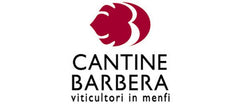
Cantina Barbera is located in the Menfi Coast, on the west coast of Sicily. The vineyards are about one mile from the Mediterranean Sea: an uncontaminated deep blue sea, facing South, where low cliffs and sandy dunes create a beautiful environment protected by the Belice River Natural Reservation Fund.
A third generation farmer, Marilena Barbera farms the Inzolia that her grandfather planted in the 20's, just as she attends to the native varietals that are the new frontier of her own generation: Perricone, Nerello, Alicante, Nero d'Avola and Grillo. Marilena makes her wines praticticing organic farming and natural winemaking, while paying utmost respect to Menfi's terroir.
"At the winery, I chose to work only with spontaneous fermentations and to adopt non invasive winemaking practices, in order to respect the unique personality of Sicilian native grape varieties and the beautiful land to which they belong."
- Red Wine
- Cabernet Franc
- Natural, Vegan-Friendly
- Dry
- Medium Bodied
- 750ml
About the Winery
Celler Escoda-Sanahuja

Joan Ramón Escoda founded Celler Escoda Sanahuja in 1999 along with his wife Mari Carmen in Conca del Barbera, Catalonia. Since then, they have been disrupting the wine industry both in their home-country and internationally.
Celler Escoda Sanahuja was one of the first wineries that, back in 2005 stopped adding sulphites to their wines. Joan Ramon has always been a radical winemaker and a grass-roots innovator. His wild enthusiasm has been fuel for the natural winemaking scene, and has also led him to, spontaneously, create the 'Brutal' movement popular in natural wine circles. These are highly individual wines reflecting their origins and their innovative winemaker.
Pre-order: Place your order before March 15th by paying a $50 deposit, and receive your case of wine in early summer.
- 750ml
Press Reviews
Wine Align
92 points - John Szabo, MS
Old vines, rolle, roussanne and grenache blanc, this is subtle and remarkably fresh white wine from the Languedoc, especially considering the hot and complicated 2023 vintage, here registered at just 12% alcohol, but it's not one of those simply early-picked, hot climate whites without flavour. The magic of balanced, old vines, resilient and capable of even quality year after tear. There's pretty extreme sapidity on offer here, a real saline blast of limestone and blinding light, and terrifically lingering finish. One of Brouca's best whites yet, drinking now but no rush - would be interesting to follow this over the next half dozen years. Tasted December 2024.
91 points - Michael Godel
Normandy-born Frédéric Brouca is one of southern France’s experimentally sound winemakers, a master of wine-styling disguise and blender of reds, whites, Rosé and also those suspected of being Rosé. Here he takes on the IGP of Hérault with a three-part blend of grenache blanc, roussanne and vermentino that speaks to the earth beneath the winemaker’s feet. Do not come here looking and surely not demanding fruit. Yes the grapes are the source, are shown the ropes and work to address our wishes but fruitiness is not the matter at hand. Elements of the earth, especially silt and salt to the “soult.” That being the core and soul of what matters in making and delivering honest wine. That this is and in a most unintentionally intentional way. Drink 2024-2027. Tasted December 2024.
91 points - Sara d'Amato
Schist-grown rolle meets roussane and grenache blanc in this cheery blend from the Faugères region of the Languedoc where French sommelier and self-taught winemaker Fréderic Brouca and his Canadian wife Elaine have set down some roots. Brimming with notes of yellow apple, lemon curd, chamomile, wildflower, lemon drop, sea salt, and mineral, this elegant and effortlessly drinkable white is notably complex and authentic. Cleanly made in a low-interventionish fashion using wild yeast and no filtration. Enjoy now in its youtful and expressive condition or hold another 2-3 years in bottle. Certified organic and vegan-friendly. Tasted December 2024.
- Red Wine
- Carignan
- Natural
- Dry
- 750ml
About the Winery
Domaine Frédéric Brouca

Frédéric grew up in Normandy and met his Canadian wife Elaine at university in Lille, Northern France. They live a nomadic lifestyle (Canada, India, Singapore and USA) though Frédéric spends about half of his time in Faugères. Since early age, Frédéric had a calling for farming and the fierce desire to become a winegrower. After completing a Masters Degree in Finance in 2001, Frédéric went back to college for a Sommelier diploma and started his career as a Burgundy wine broker.
In late 2012, Frédéric and Elaine were fortunate to take over 25 acres of old vines in Faugères, organically farmed for twenty years and deeply rooted in schist soils.
2013 was the inaugural vintage for Domaine Frédéric Brouca. In his modest winery in the village of Laurens, Frédéric is creating a new vision for Faugères wines; fresh, vibrant and made without artifice. Nothing revolutionary, simply returning to our grandparent's ideology of farming and winemaking to craft 'Vins Vivants'. The Faugères Appellation is in the heart of Languedoc in the Hérault department. Here, winemaking dates back to the Greek times and was developed during the Roman Era. It wasn't until the early 1900's, however, that the wines became more widely known for its unique schist soils and moderate Mediterranean climate. These villages are heavily reliant on wine as an important part of their culture and economy.
The area is stunning with mountain views and close proximity to the Mediterranean Sea (20 miles / 30 kms). Faugères has a long history of responsible farming. It boasts the highest percentage of organic vineyards for any AOC in all of France with almost 50% of farmers making the choice.
Press Reviews
Wine Align
91 points - Michael Godel
Debut vintage of Frédéric Brouca’s Clair Des Champs, literally “clear fields,” a light red (not a Rosé) that the Faugères winemaker chooses to categorize as "Rouge Clair.” A new genre of wine perhaps, bright and light made by co-fermenting direct press mourvèdre on terret blanc and carignan. May not talk about or incite a revolution but it is clever and insightful, so there’s definitely that. It’s clear, crisp and clean, glou-glou as they say but also taut and beautiful. There is love involved, obviously not a political thing but important as a self-titled debut label. “Talking about a revolution? It sounds like a whisper.” Drink 2024-2026. Tasted December 2024.
90 points - John Szabo, MS
A blend of mourvèdre, cinsault and terret blanc made in a very pale red (or deep rosé) 'clairet' style, Brouca's 23 Clair des Champs is a clean, sapid and savoury wine with a very particular set of flavours, beyond any easy analogy. Ripe raspberry-type fruit meets a sort of meaty, amino acid-rich taste profile, while tannins are light and grainy and acids comfortably bright. With just 12% alcohol there's also a refreshing aspect to it. It's a wine to drink lightly chilled but not cold, over the next year or two. I appreciate the integrity and craftsmanship here. Tasted December 2024.
90 points - Sara d'Amato
A salty, clean and lively claret-style red made from a schist-grown blend, largely from Faugères, that includes mourvèdre, cinsault, and the more rare terret blanc. Dry and mineral with notes of puréed red fruit, cranberry, and thyme. I can easily see this at the holiday table. Light in alcohol at 12%, certified organic and with a very fine tannic presence. Highly accessible, ready to drink and a great deal of fun. Tasted December 2024.
- Red Wine
- Mourvèdre / Monastrell, Syrah
- Natural, Organic, Vegan-Friendly
- Dry
- Full Bodied
- 750ml
- 13.5% alc./vol
About the Winery
Domaine Frédéric Brouca

Frédéric grew up in Normandy and met his Canadian wife Elaine at university in Lille, Northern France. They live a nomadic lifestyle (Canada, India, Singapore and USA) though Frédéric spends about half of his time in Faugères. Since early age, Frédéric had a calling for farming and the fierce desire to become a winegrower. After completing a Masters Degree in Finance in 2001, Frédéric went back to college for a Sommelier diploma and started his career as a Burgundy wine broker.
In late 2012, Frédéric and Elaine were fortunate to take over 25 acres of old vines in Faugères, organically farmed for twenty years and deeply rooted in schist soils.
2013 was the inaugural vintage for Domaine Frédéric Brouca. In his modest winery in the village of Laurens, Frédéric is creating a new vision for Faugères wines; fresh, vibrant and made without artifice. Nothing revolutionary, simply returning to our grandparent's ideology of farming and winemaking to craft 'Vins Vivants'. The Faugères Appellation is in the heart of Languedoc in the Hérault department. Here, winemaking dates back to the Greek times and was developed during the Roman Era. It wasn't until the early 1900's, however, that the wines became more widely known for its unique schist soils and moderate Mediterranean climate. These villages are heavily reliant on wine as an important part of their culture and economy.
The area is stunning with mountain views and close proximity to the Mediterranean Sea (20 miles / 30 kms). Faugères has a long history of responsible farming. It boasts the highest percentage of organic vineyards for any AOC in all of France with almost 50% of farmers making the choice.
Press Reviews
Wine Align
93 points - John Szabo
Clos Sauveplan is a blend of about 3/4 high density planted mourvèdre and the balance in half-century-old syrah from the lieu-dit of the same name, a plateau in the Faugères AOC in southern France. It's showing beautifully at the moment, rich, redolent of fresh black forest fruits, blackberry coulis, wild violets and cracked black peppercorn, really quite a tour de force. The palate is broad but fresh, impeccably balanced and so lively considering the warm vintage, declared at 12.5% alcohol but coming across as riper and denser than the numbers would imply. Tannins are silky and resolving nicely, and length, depth, and ultimately complexity, are excellent. One of Brouca's best to date I'd say; drink or hold a half dozen years - the stuffing augurs well for development. Tasted January 2024.
92 points - Michael Godel
The source for this co-ferment of mourvèdre and syrah is a “clos,” meaning an isolated walled vineyard in a lieu-dit called “Sauveplane”, plateau at the eastern limit of the Faugères appellation. A mix of 20 and 40 year-old vines, volcanic soils, some whole cluster fermentation. Exotically spiced, sweetly volatile. Low-level Brettanomyces, so bloody Faugères, exemplary and expected for a wine to speak up on behalf of this particular sense of place. The kind of Languedoc red that sommeliers and naturalists will share and swig with reckless abandon while those who have never tried this style and origin may be left to wonder in confounded disarray. Just know that this is very correct for producer, style and place. Drink 2024-2027. Tasted January 2023.
91 points - Sara d'Amato
From old vines farmed with minimal intervention on the plateau of "Sauveplane", a lieu-dit on the eastern edge of Faugères. Spontaneously co-fermented syrah and mourvèdre grapes are left unfined and unfiltered in the low-interventionist style of Fredric Brouca. Subsequently aged 13 months in oak resulting in very gentle spice and pleasantly mellow tannins. Offers a notable sense of place and varietal character. Relatively speaking, the wine is quite clean and still exhibits plenty of fresh fruit and very good length. Tasted January 2024.
- Red Wine
- Sangiovese, Trebbiano
- Biodynamic, Natural, Organic, Vegan-Friendly
- Dry
- Light Bodied
- 750ml
- 13% alc./vol
About the Winery
Fattoria di Sammontana
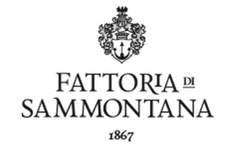
The vineyards of Fattoria di Sammontana are located along the hills that border the Arno River, 20km to the south west of Florence. Today, the family - now in its fourth generation - runs the farm according to organic and biodynamic practices, with the intent to fully preserve and sustain the traditions and winemaking history of the land. The property and its 12th century Romanesque church, were once the property of the Medici family.
- White Wine
- Grüner Veltliner
- Biodynamic, Organic
- Dry
- 750ml
- 11.5% alc./vol
About the Winery
Matthias Hager
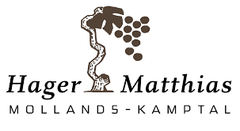
The Hager Matthias winery is located in the small village of Mollands in the Kamptal area of Lower Austria. Matthias took over the 12-hectare land and the family business at an early age. He aims to produce the best quality wine possible and to focus on being in balance with nature. The lands are cultivated according to biodynamic principles and are certified Demeter. Matthias has a vast knowledge about plants and insects, and about keeping the flora and fauna in harmony with the vines. Matthias Hager is one of the most experimental winemakers in the Kamptal region, Austria. He understood early how to work with different soil types from loess to clay. He established different product lines to highlight these differences: the blue one representing fresh, lively wines including Grüner Veltliner and Sauvignon Blanc; and the brown line gravitating towards more earthy, flavourful produce and the red line stands for no sulphites!
Press Reviews
Wine Align
92 points - Michael Godel
Juicy and extremely forthright for grüner veltliner with aromatic volume, a push of buzz, kinetic energy and acidity, finishing on a string with strong mocker flavours. Nothing subtle or understated here but more so a signature Austrian white that states its business, claims its territory and delivers waves of toothsome varietal style. Stands up to be noticed, and counted! Drink 2024-2027. Tasted October 2024.
91 points - David Lawrason
This is quite stylish, leaner and elegant - not as forward as many. There is also a more leesy note, with less obvious fruit. The honeyed, bready and peach notes remind me of pinot gris. It is light to medium bodied, quite firm, linear and very long on the finish. Some minerality here. Tasted October 2024
91 points - John Szabo, MS
Demeter-certified biodynamic, open and lively, energetic and vibrant, this is indeed one of the more lively grüner veltliners from the '23 vintage that I've tasted so far, also clean but with lees flavour lingering, supressing the exuberant citrus fruit. I love the balanced-crunchy acids and the high intensity and density flavours. Long, open and honest finish. Well done I have to say, ready to enjoy, but no rush. Tasted October 2024.
- Red Wine
- Dolcetto
- Biodynamic, Natural, Organic, Vegan-Friendly
- Dry
- Medium Bodied
- 750ml
- 13% alc./vol
About the Winery
Punset

While the vineyards that form Punset have been farmed by the Marcarino family for generations, it is truly thanks to Marina and her incredible energy that the estate is how it is nowadays. In the 1980s, she decided to pursue organic farming – a demanding choice that was rewarded by becoming the first estate to receive the organic certification in Italy. Her passion for the soil and the environment led her to embrace biodynamics and the agronomic philosophy of Manasobu Fukuoka. From one of the healthiest vineyards in Italy, Marina crafts wines that brim with life, energy, and pure terroir.
Known for the very first certified organic Barbaresco of Italy, Marina continues to show the world that you can preserve tradition and think of the future simultaneously.
- Red Wine
- Barbera, Dolcetto, Nebbiolo
- Biodynamic, Natural, Organic, Vegan-Friendly
- Dry
- Medium Bodied
- 750ml
- 13% alc./vol
About the Winery
Punset

While the vineyards that form Punset have been farmed by the Marcarino family for generations, it is truly thanks to Marina and her incredible energy that the estate is how it is nowadays. In the 1980s, she decided to pursue organic farming – a demanding choice that was rewarded by becoming the first estate to receive the organic certification in Italy. Her passion for the soil and the environment led her to embrace biodynamics and the agronomic philosophy of Manasobu Fukuoka. From one of the healthiest vineyards in Italy, Marina crafts wines that brim with life, energy, and pure terroir.
Known for the very first certified organic Barbaresco of Italy, Marina continues to show the world that you can preserve tradition and think of the future simultaneously.
Press Reviews
Wine Align
90 points - Michael Godel
Mainly dolcetto (70 per cent) with barbera and nebbiolo. Not much of the latter but necessary to widen the expression of the Langhe. Here it’s an explanation point, not a question, as in a confirmation of the exclamatory Piedmontese expression. Bright red amalgamated fruit with proper acidity and the ability to work alongside anyone and all. Drink 2019-2022. Tasted November 2019.
- Orange Wine
- Ribolla Gialla
- Biodynamic, Natural, Organic, Vegan-Friendly
- Dry
- Medium Bodied
- 750ml
- 12% alc./vol
About the Winery
Štekar
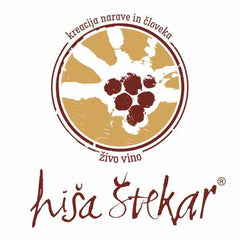
The Štekar family has been growing grapes in Goriska Brda since 1985. With 6 acres of vines planted in the stunning hills of western Slovenia, along with cherry orchards, Jure Štekar has committed to make wine the way his grandfather Emil taught his father: respecting tradition and avoiding invasive technologies.
Certified organic since 2006, Jure likes to play with long macerations, spontaneous fermentations and tiny SO2 amounts. His goal is to produce genuine wines that tell the story of his land and family.
Press Reviews
Jancis Robinson
17.5
Deep gold, pungent, punchy. A fickle nose that catches a flicker of Roman drains one moment and then floods the two feet above the glass with orange blossom and quince. So salty your mouth will pucker and then you get the sweetness and citrus oils and herbal bite. It's twists and twists of clementine peel and tangerine and sweet lime. It's oregano and kumquat, pink salt and sour cream. It's punky, silk-and-handcuffs, addictive. Jure Štekar's wines get more and more beautiful every year.
- White Wine
- Riesling
- Biodynamic, Natural
- Dry
- 750ml
About the Winery
Weingut Bianka und Daniel Schmitt
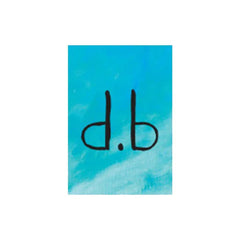
Bianka and Daniel took over the Weingut Schmitt in 2012 as the fourth generation to lead the winery. They are based in Wonnegau in the south Rheinhessen, centered in Flörsheim-Dalsheim. All of the vineyards are in Flörsheim-Dalsheim and neighbor villages Monsheim and Kriegsheim. Bianka and Daniel have been working their 16 hectares biodynamically for over a decade and are one of only 80 producers in Germany to be Demeter certified. They work with amphorae as well as used oak barrels and release a ‘Natur’ line that contains no added sulphur.
Here are Bianka and Daniel in their own words:
“Working biodynamically is a lifestyle that includes producing and spreading preparations in the vineyards as well as social interactions. The interactions between the life in the soil (like bacteria, mykorizen, plants as green cover and the vines) are composed with each other. Vines become stronger and get more vitality from a living soil, not from chemical treatments.
This active interaction in the soil life, the mutual strengthening of the plants result in stronger resilience for the vines which reflects the high quality of the grape, supports the presence of the individual soil types (calcareous soil covered by clay and partly loess, pebble). By working according to the biodynamic principles, biodiversity is supported as an automatic successor. As a result, the vineyards and the biotopes created by Bianka and Daniel offer a home for a diverse and local animal community.
After hand picking, the grapes are processed with or without skin maceration. And rest in wooden oaks (5000L, 3000L, 1200L, 600L) or clay amphorae (1200L, 300L) for at least 12 months on the whole yeast depot. The focus is on offering an optimal aging potential for the years to come. In order to support the collegial exchange and to enable operational training in the field of biodynamic agriculture, Bianka and Daniel and their winery are proud members of the Renaissance des Appellations, Demeter and Vinnatur associations.”
- Rosé Wine, Sparkling Wine
- Dornfelder, Portugieser
- Biodynamic, Natural
- Dry
- 750ml
About the Winery
Weingut Bianka und Daniel Schmitt

Bianka and Daniel took over the Weingut Schmitt in 2012 as the fourth generation to lead the winery. They are based in Wonnegau in the south Rheinhessen, centered in Flörsheim-Dalsheim. All of the vineyards are in Flörsheim-Dalsheim and neighbor villages Monsheim and Kriegsheim. Bianka and Daniel have been working their 16 hectares biodynamically for over a decade and are one of only 80 producers in Germany to be Demeter certified. They work with amphorae as well as used oak barrels and release a ‘Natur’ line that contains no added sulphur.
Here are Bianka and Daniel in their own words:
“Working biodynamically is a lifestyle that includes producing and spreading preparations in the vineyards as well as social interactions. The interactions between the life in the soil (like bacteria, mykorizen, plants as green cover and the vines) are composed with each other. Vines become stronger and get more vitality from a living soil, not from chemical treatments.
This active interaction in the soil life, the mutual strengthening of the plants result in stronger resilience for the vines which reflects the high quality of the grape, supports the presence of the individual soil types (calcareous soil covered by clay and partly loess, pebble). By working according to the biodynamic principles, biodiversity is supported as an automatic successor. As a result, the vineyards and the biotopes created by Bianka and Daniel offer a home for a diverse and local animal community.
After hand picking, the grapes are processed with or without skin maceration. And rest in wooden oaks (5000L, 3000L, 1200L, 600L) or clay amphorae (1200L, 300L) for at least 12 months on the whole yeast depot. The focus is on offering an optimal aging potential for the years to come. In order to support the collegial exchange and to enable operational training in the field of biodynamic agriculture, Bianka and Daniel and their winery are proud members of the Renaissance des Appellations, Demeter and Vinnatur associations.”
- White Wine
- Riesling
- Biodynamic, Natural
- Dry
- 750ml
About the Winery
Weingut Bianka und Daniel Schmitt

Bianka and Daniel took over the Weingut Schmitt in 2012 as the fourth generation to lead the winery. They are based in Wonnegau in the south Rheinhessen, centered in Flörsheim-Dalsheim. All of the vineyards are in Flörsheim-Dalsheim and neighbor villages Monsheim and Kriegsheim. Bianka and Daniel have been working their 16 hectares biodynamically for over a decade and are one of only 80 producers in Germany to be Demeter certified. They work with amphorae as well as used oak barrels and release a ‘Natur’ line that contains no added sulphur.
Here are Bianka and Daniel in their own words:
“Working biodynamically is a lifestyle that includes producing and spreading preparations in the vineyards as well as social interactions. The interactions between the life in the soil (like bacteria, mykorizen, plants as green cover and the vines) are composed with each other. Vines become stronger and get more vitality from a living soil, not from chemical treatments.
This active interaction in the soil life, the mutual strengthening of the plants result in stronger resilience for the vines which reflects the high quality of the grape, supports the presence of the individual soil types (calcareous soil covered by clay and partly loess, pebble). By working according to the biodynamic principles, biodiversity is supported as an automatic successor. As a result, the vineyards and the biotopes created by Bianka and Daniel offer a home for a diverse and local animal community.
After hand picking, the grapes are processed with or without skin maceration. And rest in wooden oaks (5000L, 3000L, 1200L, 600L) or clay amphorae (1200L, 300L) for at least 12 months on the whole yeast depot. The focus is on offering an optimal aging potential for the years to come. In order to support the collegial exchange and to enable operational training in the field of biodynamic agriculture, Bianka and Daniel and their winery are proud members of the Renaissance des Appellations, Demeter and Vinnatur associations.”





























